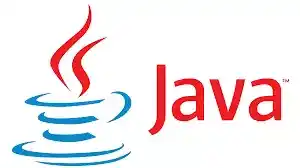features of java Object-oriented Platform Independent Secured Robust
Java programming language features and benefits
Features of Java in Detail
Java is a powerful programming language with several key features that make it popular among developers. These features, also known as Java buzzwords, contribute to its reliability, security, and platform independence.
According to Sun, Java language is simple because:
- Syntax is based on C++ (so easier for programmers to learn it after C++).
- removed many confusing and/or rarely-used features e.g., explicit pointers, operator overloading etc.
- No need to remove unreferenced objects because there is Automatic Garbage Collection in java.

Key Features of Java
-
Simple
Java is designed to be easy to learn and use, especially for those familiar with C++.- Java syntax is similar to C++, making it accessible for programmers.
- It removes complex features like explicit pointers and operator overloading.
- Automatic Garbage Collection eliminates the need to manually manage memory.
-
Object-Oriented
Java follows the Object-Oriented Programming (OOP) paradigm, which simplifies software development and maintenance. The core OOP concepts include:- Object
- Class
- Inheritance
- Polymorphism
- Abstraction
- Encapsulation
-
Platform Independent
Java’s platform independence means that programs written in Java can run on different operating systems without modification. This is achieved through:- Java Virtual Machine (JVM), which allows Java code to run anywhere.
- Bytecode, which makes Java programs portable across different platforms.
-
Components:
- Runtime Environment
- API (Application Programming Interface)
-
Secured
Java offers high security through multiple mechanisms, including:- No explicit pointers, reducing vulnerabilities.
- Programs run in a virtual machine sandbox.
- Classloader: Separates local file system classes from those imported from network sources.
- Bytecode Verifier: Ensures code safety and prevents unauthorized access.
- Security Manager: Controls access to system resources like file reading and writing.
-
Robust
Java ensures strong memory management and reliability:- Automatic Garbage Collection prevents memory leaks.
- Lack of explicit pointers improves security.
- Exception Handling and Type Checking mechanisms prevent runtime errors.
-
Architecture Neutral
Java’s architecture-neutral feature ensures that programs run consistently across different hardware environments. The size of primitive data types remains constant across platforms. -
Portable
Java’s portability allows developers to write code once and run it anywhere. The compiled bytecode can be executed on any device with a compatible JVM.
Conclusion
Java’s features make it one of the most versatile and widely used programming languages. With its simplicity, security, portability, and robustness, Java continues to be a preferred choice for developers in web, mobile, and enterprise applications.
By leveraging Java’s strengths, developers can build high-performance applications that work seamlessly across different platforms.
There is given many features of java. They are also known as java buzzwords.
-
Simple
-
Object-Oriented
-
Platform independent
-
Secured
-
Robust
-
Architecture neutral
-
Portable
-
Dynamic
-
Interpreted
-
High Performance
-
Multithreaded
-
Distributed
Table of content
- Introduction to Java
- Java Basics
- Setting Up Java Development Environment
- Writing and Running Your First Java Program
- Java Syntax and Data Types
- Operators in Java
- Control Statements (if-else, switch, loops)
- Object-Oriented Programming (OOP) in Java
- Classes and Objects
- Constructors in Java
- Inheritance in Java
- Polymorphism (Method Overloading and Overriding)
- Encapsulation and Abstraction
- Interfaces and Abstract Classes
- Exception Handling in Java
- Types of Exceptions
- Try-Catch Block
- Finally Block and Throw/Throws
- Custom Exceptions
- Java Collections Framework
- Introduction to Collections
- List, Set, and Map Interfaces
- ArrayList vs LinkedList
- HashMap vs HashSet
- File Handling in Java
- Multithreading in Java
- Introduction to Threads
- Thread Lifecycle
- Creating Threads (Thread Class vs Runnable Interface)
- Synchronization and Deadlocks
- Networking in Java
- Java Networking Basics
- Socket Programming
- HTTP Requests in Java
- Java Database Connectivity (JDBC)
- Introduction to JDBC
- Connecting to MySQL Database
- Executing SQL Queries
- Using Prepared Statements
- Java Frameworks and Technologies
- Introduction to Spring Framework
- Hibernate ORM
- JavaFX for GUI Applications
- Java Interview Preparation
- Additional Java Resources
- Best Books to Learn Java
- Java Certification Guide
- Online Java Practice Platforms